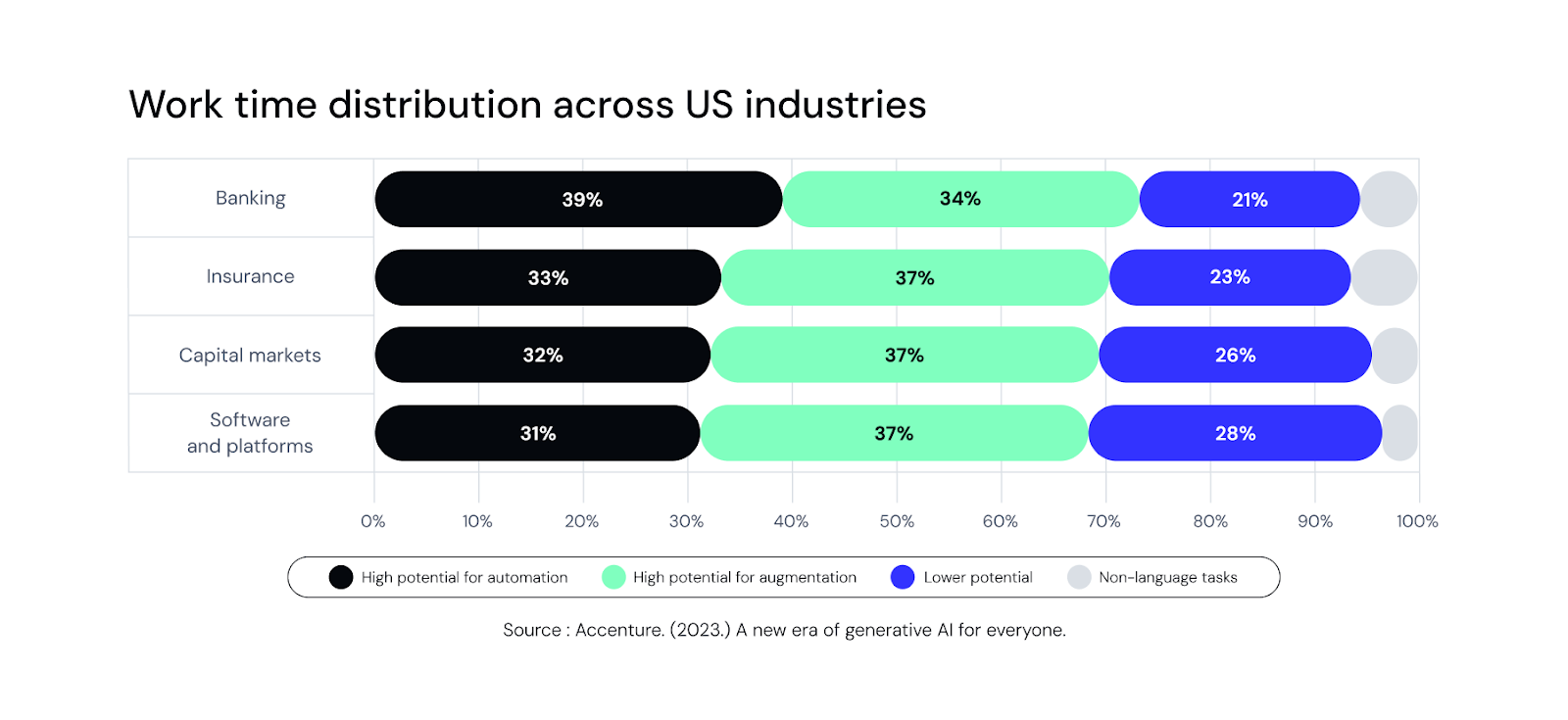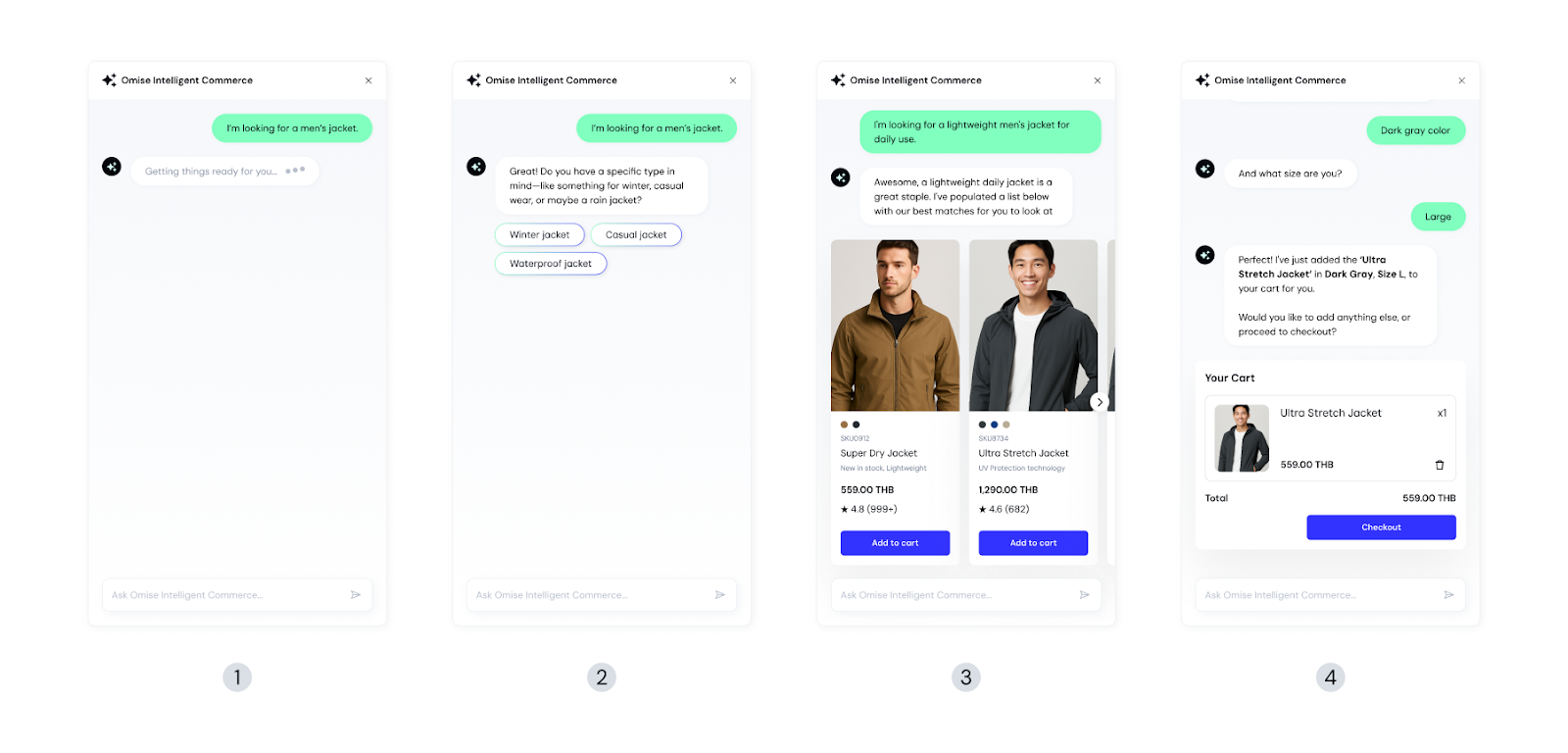Products
For Merchants
For Platforms and Banks
Professional Services
Resources
Help center
.png)
Before 1967, if you needed to pay bills or withdraw funds, you had to go all the way to the bank. This meant traveling, filling out slips, and standing in line for an hour to complete your transactions. The process was time-consuming and tedious.
Then came the ATM.
With a plastic card and a PIN, people could transfer money electronically wherever an ATM was available. Fast forward to today, we have internet and mobile banking. With just an internet connection and a few taps, we can process transactions anytime and anywhere. It's clear how powerful digitalization has been in transforming the financial sector, making people’s lives easier with each new invention.
But just around the corner comes the next big shift that will change the financial industry like never before: AI.
Though AI has been around and used for decades, the recent rise of generative AI has significantly accelerated its impact. We are all beginning to see how AI is set to profoundly influence our lives: from daily routines to professional workflows. But in the financial industry, the impact is even more substantial.
According to an Accenture report on the potential impact of large language models (LLMs), it is predicted that in the banking sector, 39% of total work time is spent on tasks with a high potential for automation, while 34% of tasks have a high potential for augmentation.

This is why the financial sector is one of the top industries investing heavily in AI. According to the report, financial services firms spent a significant $35 billion on AI in 2023, with projected investments across banking, insurance, capital markets, and payments expected to reach $97 billion by 2027.
In the fintech industry today, AI is no longer just a tool for automation; it is becoming the core engine that redefines experiences, processes, and decision-making. In banking, the most promising AI use cases lie in sales and service. For example, a customer service agent can respond to customers 24/7 with comprehensive and accurate information about products and policies. In payments, AI can significantly improve fraud protection and reduce false positives, thereby enhancing the overall customer experience.

At Omise, we’re embracing this shift head-on. We’re using AI to transform how payments work—not just in terms of operations and security, but at a fundamental level that delivers an entirely new customer experience. One of our most exciting initiatives is Agentic Commerce: a new way to shop, pay, and interact.
Imagine how easy life would be if you could just go to your favorite brand’s website and, with a simple tap on your screen, tell AI what you have in mind: “I want a men’s jacket for everyday use.” The AI would then find options based on your preferences, available stock, size, and budget. After you choose one, AI generates a one-tap checkout. You tap again. You’ve paid. The item is being prepared and on its way to you.
All of this with just a few taps, and without ever leaving the conversation.

Generative AI such as ChatGPT or Gemini are intelligent and helpful, but agentic AI holds even greater potential to empower businesses. Unlike chat agents or chatbots that wait for user prompts to perform simple tasks, agentic AI is proactive and requires only minimal human interaction. Once given an initial goal, it has the agency to define, decide, and execute a series of actions needed to accomplish that goal.
With agentic AI working alongside teams of human experts, organizations can increase automation across tasks and workflows, unlocking new levels of efficiency and growth. This is no longer just a vision, companies are actively investing in improving this technology. According to Gartner, by 2028, 33% of enterprises will include agentic AI, up from less than 1% in 2024.
Omise’s vision for the future of payments is expanding with the rise of agentic AI, especially through conversational payment experiences like Agentic Commerce, which we are actively developing. As a payment provider and partner to online businesses, we are excited to help bring to life a future where AI helps customers shop and pay with minimal effort.
Agentic AI is the future we envision. But it doesn’t stop here. AI is an unstoppable force reshaping the world of finance, and Omise is pushing the boundaries even further. Stay tuned for the next blog in this AI series, where we’ll share more about what’s coming.
In the meantime, you can learn more about Omise AI and sign up to be among the first to try the beta here
Sources
Coshow, T. (2024, October 1). Intelligent Agents in AI Really Can Work Alone. Here’s How. Gartner. Retrieved June 24, 2024, from https://www.gartner.com/en/articles/intelligent-agent-in-ai
Artificial Intelligence in Financial Services. (2025). In World Economic Forum. World Economic Forum.